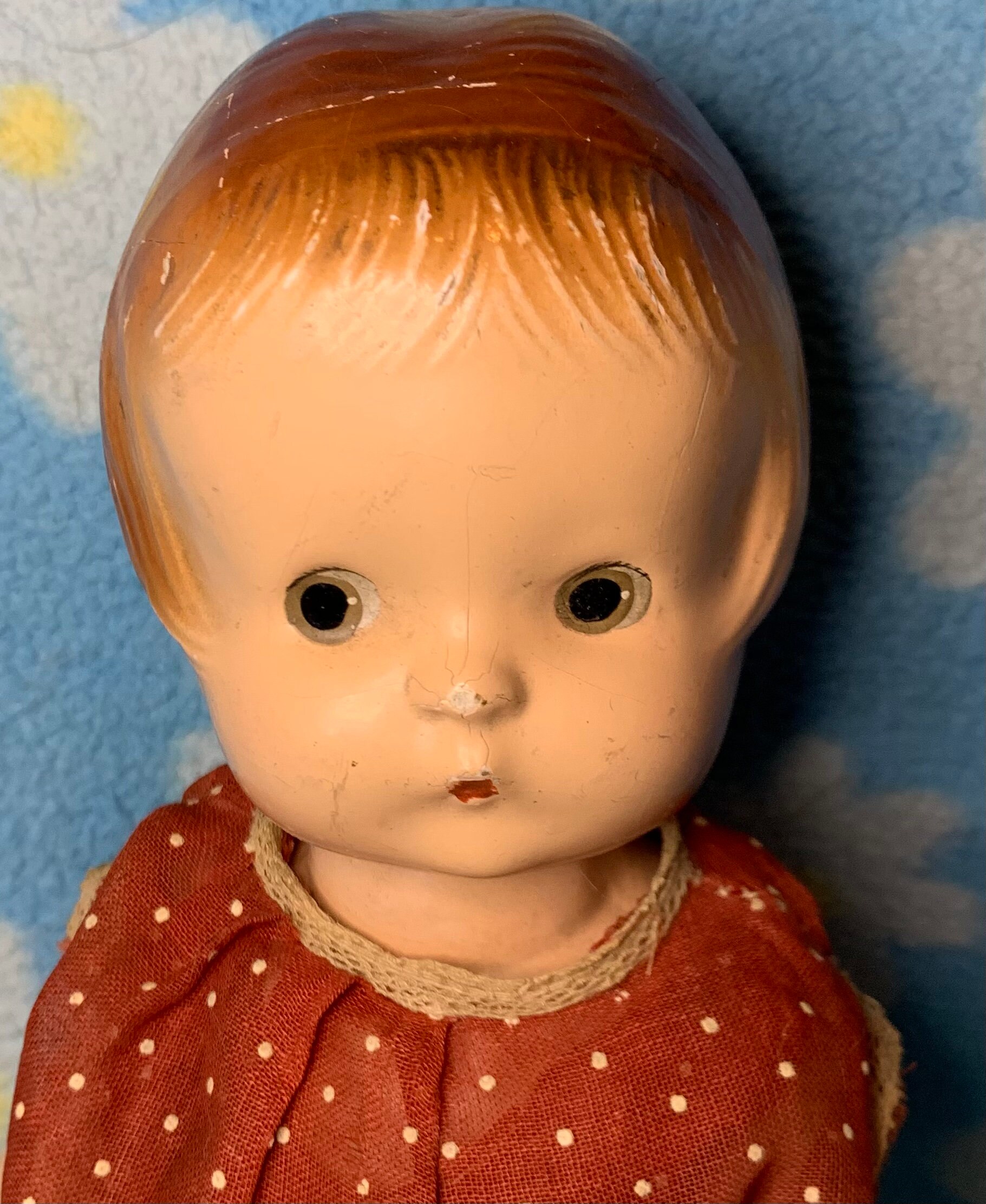A Better Place
By Mary Batten
My first scientific experiment was to find out if heaven existed. Of course it wasn’t real science. I didn’t know anything about the experimental method, but I knew there was something I had to find out. By the time I was 6, I had heard a lot about heaven from my devoutly religious father and from preachers who conducted funerals. You have to understand that when I was growing up in the farming community of Smithfield, Virginia, back in the 1940s, funerals and weddings were the two biggest social events, and my family didn’t miss a one. Funerals and weddings were like family reunions with people you hadn’t seen since the last event and one person you’d never see again.
Preachers consoled the bereaved by telling them the dead had gone to a “better place” called heaven. But getting there required a strange form of transportation. The dearly departed were sealed in a long wooden box, lowered into the ground, and covered with mounds of dirt. Was heaven down there in that deep hole in the ground? And how would the person get out of the box? It was downright scary, especially when a neighbor’s child, younger than me, died of a brain tumor. I didn’t think children could die. For years after that funeral, I would feel my head with my fingers. Was that a lump I felt? Did I have a brain tumor? Did the neighbor’s little girl go to heaven? If so, did she finish growing up there? Did heaven have schools? How would anybody know? I never heard of anybody coming back from the dead.
I wondered if there really was such a place as heaven. Was what the preachers said true? It sounded like a fairy tale. Since nobody had ever come back to report, how could anybody know where you went when you died or if you went anywhere? When a pig or cow died on the farm, my father and brother dug a hole and buried it. Except for the mule. My father couldn’t dig a hole big enough to bury the mule, so he called the tallow truck that picked up the mule’s body and took it away to be made into glue. Nobody talked about animals going to heaven, but I wondered if there were a heaven for them or for anybody.
With the pure logic of a child, I decided to do a little experiment to find out. I put Teeny Tiny, my rubber baby doll, inside a cardboard shoebox and dug a grave with Daddy’s hole-digger that he used to make holes in the field for the poles on which he stacked peanut vines to dry after harvesting. In October, peanut shocks stood like headless figures in the field.
I didn’t conduct a pretend funeral like some kids who played funeral. I just told Teeny Tiny “good luck” and placed her box in the hole I’d dug under one of the maple trees in our yard. Then I shoveled dirt on top of the box, covering it the way people covered coffins at the cemetery. My idea was to see whether Teeny Tiny and her cardboard coffin disappeared. If they did, I thought it would prove heaven was real, though I had never heard anybody say dolls could go to heaven. I didn’t tell anybody about my experiment.
About a week later, after a hard rain, Teeny Tiny and what was left of her box floated on top of the ground. Resurrected by rain, her rubber skin was peeling, and her grave was now just a mud hole. So much for heaven as far as I was concerned!
Religion was full of problems for me. “Our father who art in Heaven,” people prayed. But my father was right here on Earth, and I didn’t know anything about this other one that nobody had ever seen. What made people so sure anybody was there? Besides, how could God be Jesus’ father and everybody else’s father, too? There was so much that didn’t make any sense.
“Swing low, sweet chariot, coming for to carry me home,” people sang in church. But the home they were singing about wasn’t in this world. I couldn’t understand why people spent so much time talking and singing about dying. Wasn’t being alive more important? I was young and new to this world and I thought it was wonderful while grown-ups around me seemed to see only sin and pain. I was interested in where I was going in my life, not where I might go after I died.
Imagining a time when there would be no me was terrifying. Many a night, I was afraid to go to sleep for fear I might die. I dreaded the words of the prayer Mother taught me to say before going to bed: “If I should die before I wake, I pray the Lord my soul to take.” Not a comforting thought to take to sleep. I was scared of saying that prayer, yet if I didn’t, I was afraid I would surely die. Afterward, I lay in bed watching the leaf shadows as the wind blew the tree branches outside my window. If I keep watching the leaf shadows, I won’t go to sleep and I won’t die, I told myself. Mercifully, sleep always came. I was alive the next morning and so were the trees. Years later, I told Daddy how I was afraid to go to sleep for fear I would die.
“I never knew,” he said.
“I know, I never told anybody.”
I knew he would do anything he could to keep me safe, but even he couldn’t protect me from death.
Trying to sort out Bible stories was as difficult as trying to understand what was true and what was false. They were no different than the stories in my fairy tale book, but people said they were true. How did they know? Or were they just pretending they were true? That thought was almost as frightening as the Now-I-lay-me-down-to-sleep prayer.
I think I was around 5 when I first had serious questions about heaven.
Daddy and I were visiting Sis Ruth, one of his older sisters. While he and Uncle Maurice sat talking on the front porch, I went to the kitchen with Sis Ruth. She stood at her kitchen table making clabber biscuits, her hands covered with flour as she kneaded the dough, pinched off enough for each biscuit, and laid it in a pan. She and Mother made the best biscuits in the world.
“In the sweet bye and bye,” she sang. She liked to sing when she was cooking. “In the sweet bye and bye, we will meet on that beautiful shore.” She stopped singing and looked at me. “Darling, you know Jesus loves us and will welcome us to heaven.”
I was all ears. “What’s heaven?” I asked.
“The happiest, sweetest place you’ve ever known,” she said.
“What do you eat there?” I asked. I figured people had to eat no matter where they were, and I wondered if the food would be as good as what Mother and Sis Ruth cooked.
“Milk and honey,” she said. “When you get there, you’ll never suffer any sickness or pain.”
Well, that was two strikes against heaven for me. Milk made me gag and I didn’t like honey. But the part about never being sick might be OK. I was a sickly child and seemed to catch everything going around.
“How do you get to Heaven?” I asked.
“After you leave this mortal life, you go to meet Jesus,” she said.
“You mean you have to die to get there?”
A look of rapture spread across her face. “God sent his sweet son Jesus to make that eternal home for us.”
“Did Jesus make us die?” I asked. This conversation was getting scary.
“He died on the cross for us,” she said. “When we die, if we’re saved, we’ll go to him and kiss that sweetness. Yes, my Lord.” She patted the last biscuit in the pan and wiped her hands on her apron.
“I don’t want to die,” I screamed. “I hate Jesus. I hate Jesus!”
“Oh, child,” she gasped. Grabbing my arm, she pulled me through the hall onto the front porch and handed me over to my father.
“Taylor, do something with this child. She’s blaspheming our sweet Lord,” she told my father. I didn’t know what he was going to do.
“She’s just a child, Ruth. She don’t know what she’s saying,” is all he said.
But I did know what I was saying. Heaven sounded like a scary place. I was alive. I wanted to live. I didn’t want to think about dying all the time. Funerals were sad and terrifying. Every time my parents took me to a funeral, I wanted to scream. I didn’t want to be there. I didn’t want to be dead, closed up in a box. I began to think reading the Bible might be dangerous. It was a big black book that my father read every evening and it seemed to have some terrible power over him. It was the only book he read, and he called it the “Word of God.” When he read aloud from that book, we had to sit quietly and listen. His voice changed, becoming deeper when he read, and the words were in an English nobody spoke. It might as well be a foreign language. If you had to die to go to heaven and see Jesus and God, and that book had instructions, I didn’t want any part of it. My father held the book in such reverence and solemnity that I shied away even from touching it for fear some powerful force might suck me inside and trap me. But I had some solace.
As crude and unscientific as my experiment was, it gave me some comfort. To my mind, burying Teeny Tiny proved there was no such place as heaven. It was just a fairy tale. Dead was dead. Buried was buried. Life was what I had, and I better live it while I could.
***
Mary Batten is a writer for television, film, and publishing. She is the author of 16 nature/science books for children and adults. Her many projects have taken Mary into tropical rainforests, astronomical observatories, and scientific laboratories. She was nominated for an Emmy for her scriptwriting on the Children’s Television Workshop series 3-2-1 CONTACT. In 2020, she created a book series, Life in the Extreme. The first book in that series is Life in a Frozen World: Wildlife of Antarctica (Peachtree 2020). The second book, Life in Hot Water: Wildlife at the Bottom of the Ocean, came out in 2022 and was selected by the National Science Teaching Association for its list of Outstanding Science Trade Books for Students K-12. Her author website is www.marybatten.com.


